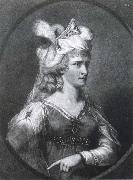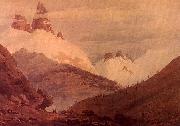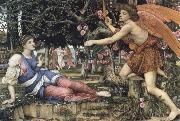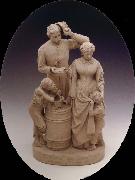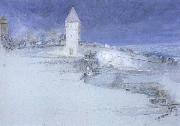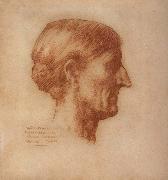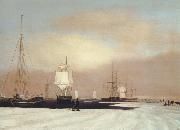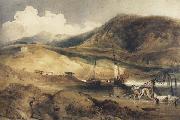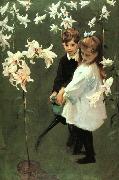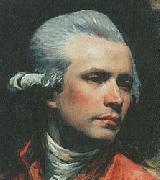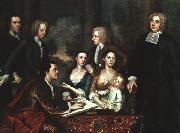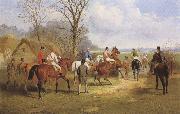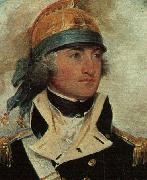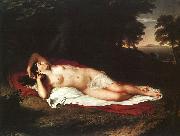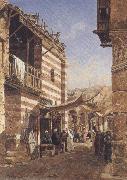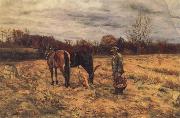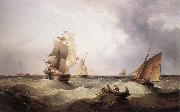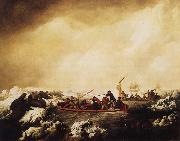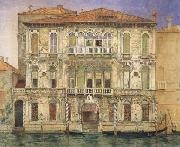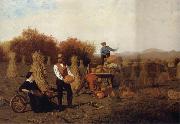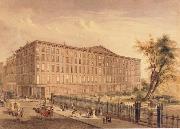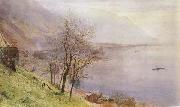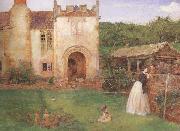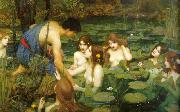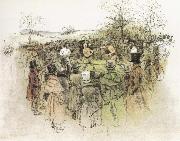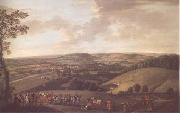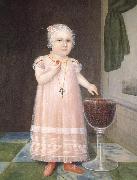|
|
|
|
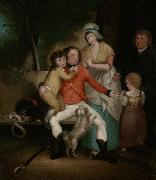 |
John Ritto Penniman
|
|
John Ritto Penniman (1782-1841) was a painter in Boston, Massachusetts, USA. He created portraits, landscapes, and allegorical paintings, as well as designs for engravings, such as the official seal of the city of Boston in 1822. He also worked as an assistant to Gilbert Stuart. Penniman died in 1841 in Baltimore. |
|
|
|
|
|
|
|
|
|
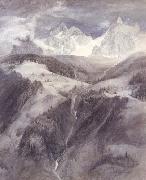 |
John Ruskin
|
|
English Romantic Writer and Painter, 1819-1900 |
|
|
|
|
|
|
|
 |
John Samuel Raven
|
|
(1829-1877) was an English landscape painter.
Raven was born in Suffolk in 21 Aug. 1829. He was the son of the Rev. Thomas Raven, a clergyman of the Church of England, who had considerable talent as an amateur artist, as may be seen from six water-colour drawings by him in the South Kensington Museum.
John Raven was, however, almost entirely self-taught, initially by studying the works of John Crome and John Constable. He exhibited at the Academy as early as 1845, and his works also appeared at the British Institution. This part of his career was focused on views of the area where he lived, near St. Leonards[disambiguation needed]. He at first fell under the influence of the Norwich school, but his maturer works, which show much poetic feeling, bear traces of pre-Raphaelitism. It was his custom to prepare elaborate cartoons for his pictures. He was drowned while bathing at Harlech in 13 June 1877.
He married Margaret Sinclair Dunbar in 1869. |
|
|
|
 |
john scarlett davis
|
|
John Scarlett Davis (1 September 1804 - 29 September 1845), or Davies, was an English painter of the first half of the nineteenth century.
Davis was born in Leominster, the son of James Davis, a watchmaker; Scarlett was his mother's maiden name. At the age of eleven, Davis won an award from the local society for the encouragement of the arts. He was educated at the Royal Academy of Art School in London, and began exhibiting his works at the annual Royal Academy shows in 1825. He was influenced by the work of his contemporary, Richard Parkes Bonington.
Davis painted portraits, landscapes, and church interiors, and developed a distinctive specialty in painting the interiors of art galleries. His picture The Interior of the British Institution Gallery (1829) records a collection of Old Masters. His watercolor of the collection of Benjamin Godfrey Windus (1835) shows the Turner pictures on the walls. (John Ruskin studied those Turners while writing his Modern Painters.) Davis painted the interiors of the Louvre as well. Between 1842 and 1845 he was commissioned to draw copies of the paintings in the collections of the British royal palaces.
Davis painted scenes on the Continent during his travels there. He was in Florence in 1834, and Amsterdam in 1841. He painted the interior of the Uffizi Gallery.
Davis's later years were marred by alcoholism and spells of imprisonment. His posthumous reputation suffered as a result.
Davis's name is almost identical to that of John Scarlett-Davies, a modern video artist and director. |
|
|
|
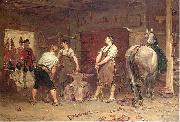 |
John Seymour Lucas
|
|
(21 December 1849 - 8 May 1923) was a Victorian English historical and portrait painter as well as an accomplished theatrical costume designer. He was born into an artistic London family, and originally trained as a woodcarver, but turned his attention to portrait painting and entered first the St. Martin's Lane Art School and later the Royal Academy Schools. Here he met his French wife, fellow artist Marie Cornelissen, whom he married in 1877. Lucase artistic education included extensive travels around Europe, particularly Holland and Spain, where he studied the Flemish and Spanish Masters. He first started exhibiting in 1872, was elected an associate member of the Royal Academy in 1876 and a full Royal Academician in 1898.
John Seymour Lucas was first and foremost a historical genre painter with a particular talent for realism in the depiction of costumes and interiors. Inspired by van Dyck and particularly Diego Velezquez, he excelled in depicting scenes from the English 16th to 18th century Tudor and Stuart periods, including in particular the Spanish Armada, Preparing for the Voyage, the English Civil War and the Jacobite rebellions.
His first major work to achieve widespread public acclaim was Rebel Hunting after Culloden, executed in 1884. It was praised not only for the obvious tension between the muscular blacksmiths and the redcoated forces of law and order (or repression) but for the extraordinary realism in the depiction of the rough smithy and glowing horsehoe on the anvil. In 1885 his next major work whas "Preparing for the Voyage".
As his reputation grew, Lucas increasingly mixed in society circles, and became firm friends with the famous society portrait painter John Singer Sargent who was his almost exact contemporary. A portrait of Lucas executed by John Singer Sargent is displayed in Tate Britain. Towards the 1890s John Seymour Lucas executed a number of major works for prestigious public buildings or royal clients. These include: The Flight of the Five Members (Houses of Parliament), The Granting of the Charter of the City of London (Royal Exchange), Reception by HM King Edward VII of the Moorish Ambassador (Royal Collection), HRH the Prince of Wales in German Uniform (Royal Collection)
Apart from executing over 100 major oil paintings and a host of drawings, Lucas was renowned as a set and costume designer for the historical dramas popular on the late Victorian and early Edwardian stages. One of his more unusual commissions was the "Duke of Normandy" costume for the ill-fated prince Alfred of Saxe Coburg-Gotha for the Devonshire House Ball in 1897. Lucas was also a prolific watercolour painter and was elected a member of the Institute of Painters in Water Colours in 1877.
During most of his artistic career, John Seymour Lucas lived in a purpose-built studio in South Hampstead, London, designed for him by his friend and fellow artist, architect Sydney Williams-Lee.
He retired from painting towards the end of World War I, and moved to Blythburgh, Suffolk, where re-designed a house next to the church known as 'The Priory'. Lucas died in 1923 and is interred in Blythburgh church yard. His son, Sydney Seymour Lucas, was also an artist, and illustrator.
|
|
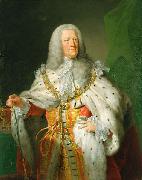 |
John Shackleton
|
|
was a British painter and draughtsman who produced history paintings and portraits. His parents and origins are unknown.
Shackleton painted several surviving portraits, for example of Henry Pelham (National Portrait Gallery), William Windham (1717 - 1761; now at Felbrigg Hall, Norfolk), and of John Bristowe, steward to the first duke of Newcastle (now in the Reitlinger Museum of Fine Art, Maidenhead).
From 1749 he was Principal Painter in Ordinary to George II and George III. He continued to be paid for portraits of the king and queen up even during 1765 - 6, when their official portraits were being done by Allan Ramsay. Several examples of his and his studio's output of royal portraits survive - one of George II dated 1755 is in the Scottish National Portrait Gallery, Edinburgh; another of George II in Room 2 of the British Museum, London (commissioned by the museum in 1759 - the Museum also holds engravings after his paintings), along with two more of George II in the Royal Collection and others in Fishmongers' Hall, London, and Maidenhead Museum.
|
|
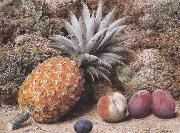 |
John Sherrin
|
|
1819-1896
Pencil and watercolour heightened with bodycolour
12x16in
30.5x40.6cm
|
|
|
|
|
|
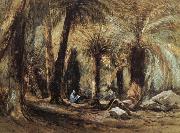 |
John Skinner Prout
|
|
(1805-76), nephew of the famous English watercolourist Samuel Prout (1783-1852) |
|
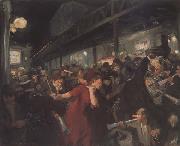 |
John sloan
|
|
American Ashcan School Painter, 1871-1951 |
|
|
|
|
|
|
|
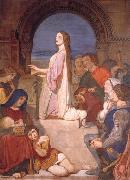 |
John Tenniel
|
|
English Golden Age Cartoonist and Illustrator.
(1820-1914) |
|
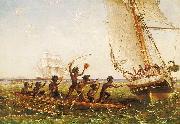 |
John Thomas Baines
|
|
(John) Thomas Baines (27 November 1820 - 8 May 1875) was an English artist and explorer of British colonial southern Africa and Australia. Born in King's Lynn, Norfolk, Baines was apprenticed to a coach painter at an early age. When he was 22 he left England for South Africa aboard the "Olivia" (captained by a family friend William Roome) and worked for a while in Cape Town as a scenic and portrait artist, and as official war artist during the so-called Eighth Frontier War for the British Army.
|
|
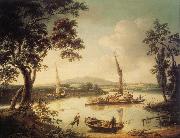 |
John Thomas Serres
|
|
1759?C1825 English painter, born in London in December 1759. He was the eldest son of Dominic (1722?C93), a successful marine painter who was to be one of the founder members of the Royal Academy. |
|
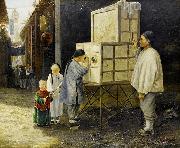 |
John Thomson
|
|
John Thomson (14 June 1837 - 29 September 1921) was a pioneering Scottish photographer, geographer and traveller. He was one of the first photographers to travel to the Far East, documenting the people, landscapes and artifacts of eastern cultures. Upon returning home, his work among the street people of London cemented his reputation, and is regarded as a classic instance of social documentary which laid the foundations for photojournalism. He went on to become a portrait photographer of High Society in Mayfair, gaining the Royal Warrant in 1881.
The son of William Thomson, a tobacco spinner and retail trader, and his wife Isabella, Thomson was born the eighth of nine children in Edinburgh in the year of Queen Victoria's accession. After his schooling in the early 1850s, he was apprenticed to a local optical and scientific instrument manufacturer, thought to be James Mackay Bryson. During this time, Thomson learned the principles of photography and completed his apprenticeship around 1858.
During this time he also undertook two years of evening classes at the Watt Institution and School of Arts (formerly the Edinburgh School of Arts, later to become Heriot-Watt University). He received the "Attestation of Proficiency" in Natural Philosophy in 1857 and in Junior Mathematics and Chemistry in 1858. In 1861 he became a member of the Royal Scottish Society of Arts, but by 1862 he had decided to travel to Singapore to join his older brother William, a watchmaker and photographer.
|
|
|
|
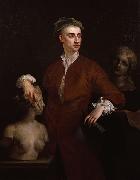 |
John Vanderbank
|
|
John Vanderbank (9 September 1694 - 23 December 1739) was an English portrait painter and book illustrator, who enjoyed a high reputation for a short while during the reign of King George I, but who died relatively young due to an intemperate and extravagant lifestyle.
Vanderbank was born in London, the eldest son of John Vanderbank Snr. His father was a Huguenot tapestry weaver, born in Paris, but who was forced to flee to Holland before coming to England where he became head of a Soho tapestry weaving factory.
Vanderbank studied under Sir Godfrey Kneller at James Thornhill's art academy in Great Queen Street from 1711 until 1720, when he joined with Louis Cheron to found his own academy in St. Martin's Lane. The venture proved a failure, and in 1729 he went to France to avoid his creditors. On his return he entered "the liberties of the Fleet" - mansion houses near Fleet prison, London, in which certain privileged prisoners could serve out their sentences in return for payment.
It was noted by George Vertue that "only intemperance prevented Vanderbank from being the greatest portraitist of his generation." He died of Tuberculosis in Holies Street, Cavendish Square, London, on 23 Dec. 1739, aged about 45, and was buried in Marylebone church. |
|
|
|
|
|
|
|
|
|
|
|
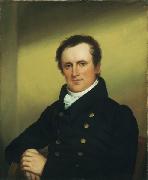 |
John Wesley Jarvis
|
|
(1781 - January 14, 1839), American painter, nephew of Methodist leader John Wesley, was born at South Shields, England, and was taken to the United States at the age of five.
He was one of the earliest American painters to give serious attention to the study of anatomy. He lived at first in Philadelphia, afterwards establishing himself in New York City, where he enjoyed great popularity, though his conviviality and eccentric mode of life affected his work. He visited Baltimore, Charleston, and New Orleans, entertaining much and painting portraits of prominent people, particularly in New Orleans, where General Andrew Jackson was one of his sitters. He had for assistants at different times both Thomas Sully and Henry Inman. He affected singularity in dress and manners, and his mots were the talk of the day. But his work deteriorated, and he died in great poverty in New York City. |
|
|
|
|
|
|
|
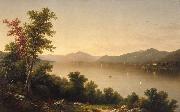 |
John William Casilear
|
|
(June 25, 1811 - August 17, 1893) was an American landscape artist belonging to the Hudson River School.
Casilear was born in New York City. His first professional training was under prominent New York engraver Peter Maverick in the 1820s, then with Asher Durand, himself an engraver at the time. Casilear and Durand became friends, and both worked as engravers in New York through the 1830s.
By the middle 1830s Durand had become interested in landscape painting through his friendship with Thomas Cole. Durand, in turn, drew Casilear's attention to painting. By 1840 Casilear's interest in art was sufficiently strong to accompany Durand, John Frederick Kensett, and artist Thomas P. Rossiter on a European trip during which they sketched scenes, visited art museums, and fostered their interest in painting.
Casilear gradually developed his talent in landscape art, painting in the style that was later to become known as the Hudson River School. By the middle 1850s he had entirely ceased his engraving career in favor of painting full-time. He was elected a full member of the National Academy of Design in 1851, having been an associate member since 1831, and exhibited his works there for over fifty years.
Casilear died in Saratoga Springs, New York in 1893. |
|
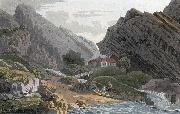 |
John William Edy
|
|
John William Edy (1760 - 1820) was an English painter. He worked for the publisher John Boydell in London, often anonymously. In the summer of 1800 Edy visited Norway on an assignment for Boydell together with the landscape painter William Fearnside. They were in Norway from July 31 and until the end of September the same year.
|
|
|
|
|
|
|
|
|
|
|
|
|
|
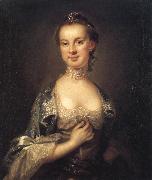 |
John Wollaston
|
|
English-born American Rococo Era Painter, active 1742-1775 |
|
|
|
|
|
|







